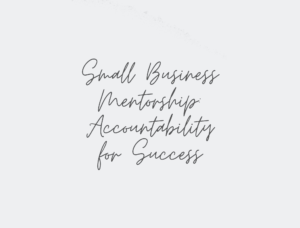Introduction
Do you feel stuck in your job and want to advance? Gallup found that only 33% of workers are engaged, indicating that many are seeking career growth.
Career growth involves improving your abilities, networking, and finding personal fulfillment. Whether you want a promotion, a job move, or to improve your skills, career progression is crucial to long-term success and enjoyment.
Setting clear and measurable goals, consistently upgrading your abilities, building a strong professional network, seeking mentorship and guidance, embracing change, and taking risks are five basic yet powerful career growth stages. Jump in!
Read more about International Skills Development.
Step 1: Set Clear and Achievable Goals
Career growth requires SMART goals. These goals motivate and guide growth, making it easier to achieve goals. Without goals, it’s easy to get complacent and neglect professional progress.
Actionable Tips
- Identify Your Aspirations: Figure out what you want to achieve in your job first. Think about your goals for the short and long run.
- Break Down Goals: Break up your big long-term goals into smaller short-term ones that you can handle. That makes them easier to reach and less scary.
- Ensure Specificity: What you want to do should be very clear. Say, “I want to become a project manager within two years,” instead of “I want to get a promotion.”
- Make Them Measurable: Make your goals measurable so you can see how you’re doing. Let’s say, “Complete three professional certifications within the next 18 months.”
- Keep Them Achievable: Set goals that are challenging but not impossible to reach with hard work and the right tools.
- Stay Relevant: Make sure your goals are in line with your job path and your values, so they help you grow as a professional.
- Time-Bound: Set due dates for your goals to keep yourself on track and feel like you need to act quickly.
Setting SMART goals helps you see how you can advance in your job, which keeps you motivated and enables you to reach your goals.
Step 2: Continuously Improve Your Skills
Career success requires ongoing learning and skill development in today’s fast-changing job market. Updating your abilities makes you more competitive and brings up new advancement options. Employers value professionals who actively improve and follow industry trends. Continuous personal and professional development enables career success and adaptability.
Actionable Tips
- Seek Feedback: Ask your bosses, coworkers, and teachers for feedback on a regular basis to find out what you can do better. You can learn a lot about your skills and weaknesses from constructive criticism.
- Stay Informed on Industry Trends: To stay current, follow industry news, join professional associations, and attend forums. This helps you find in-demand abilities.
- Self-Assessment: Check your abilities and knowledge often. Review your performance and professional goals to find areas for development.
- Set Learning Goals: Set learning goals using feedback and self-assessment. Focus on career-related talents that will boost your value.
- Mentorship Programs: Participate in mentorship programs to gain insights and guidance from experienced professionals. Mentors can provide valuable advice and help you navigate your career path.
By improving your abilities, you show a dedication to professional progress and boost your career prospects. This proactive attitude to learning and growth can help you succeed in your profession.
Step 3: Build a Strong Professional Network
Networking is key to career advancement. Unlock new chances, get guidance, and keep up with industry developments with a strong professional network. Building relationships with coworkers, industry leaders, and other professionals can boost your career by giving useful connections and insights.
Actionable Tips
- Attend Industry Events: Go to workshops, conferences, and seminars that are connected to your field. These events are great ways to meet workers, talk about your ideas, and make new connections.
- Join Professional Organizations: Join professional organizations that are related to your field. These groups often put on events where you can meet new people and give you tools to help you connect with peers and teachers.
- Leverage Social Media Platforms: Use sites like LinkedIn to get in touch with people who work in your field. Engage with content, join groups that are relevant to you, and take part in talks to get more attention and make connections.
- Engage in Online Communities: Join online groups and sites that are related to your field. To grow your network, share what you know, ask questions, and get in touch with other experts.
- Follow-up: Send them a unique message after meeting them at an event or online. Keep in touch with people in your network daily to keep the connections strong.
You can find new jobs, get advice, and learn about industry trends by creating a strong professional network. Effective networking can boost your career.
Step 4: Seek Mentorship and Guidance
A mentor can transform your career. A mentor offers career advice, shares personal experiences, and guides you through problems and opportunities. Mentorship can accelerate your professional advancement by providing support, feedback, and guidance you may not get at work. Mentors can help you make smart choices and avoid frequent mistakes.
Actionable Tips
- Identify Potential Mentors: Find people who have worked in your area before and have been successful at it. You can find possible teachers in your company, in professional networks, or at trade groups.
- Approach Respectfully: Be polite and efficient when you contact a possible mentor. Tell them exactly why you want their help and how you think they can help you with your job.
- Be Specific: Ask for mentorship by stating your job goals and how their experience matches yours. This helps the possible mentor understand your needs and how to help.
- Build a Relationship: It takes time to build a mentorship bond. Begin by asking for help with specific problems, and over time, create a mentoring connection that covers more ground.
- Stay Committed: Schedule regular meetings, be open to feedback, and act on the advice offered to show that you are committed to the mentorship.
Mentorship can provide career-changing insights and recommendations. Mentors’ experience and assistance can help you overcome obstacles, seize opportunities, and achieve professional goals.
Step 5: Embrace Change and Take Risks
Career advancement requires change and strategic risks. Adaptability and seizing new possibilities are key to career advancement in a changing labor market. Change may improve your career by providing fresh experiences, skills, and views. When calculated, taking chances can open doors that a more conservative approach cannot.
Actionable Tips
- Identify Opportunities: Always keep an eye out for growth opportunities in your company or business. Look for roles, projects, or job openings that fit with your work goals.
- Evaluate Risks: Think about the pros and cons of each chance. Think about things like how it will affect your job, the skills you will learn, and the problems you might face.
- Seek Feedback: Talk to mentors, coworkers, or supervisors about possible possibilities. Their ideas can help you make smart choices and lower your risks.
- Take Small Steps: Take less risk at first to boost your confidence. This could mean taking on a difficult job, offering to help with extra tasks, or learning a new skill.
- Be Prepared: Give yourself the information and skills you need to take on new challenges. To successfully adapt to change, you need to keep learning and growing as a worker.
You can move up in your job a lot if you are open to change and willing to take risks. Getting out of your comfort zone can help your career by giving you new chances, skills, and experiences. Remember that taking smart chances can often lead to the best results.
Conclusion
Professional development and proactive thinking are needed to advance a career. Setting clear and achievable SMART objectives, developing your skills to stay competitive, building a strong professional network for support and opportunities, seeking mentorship for assistance, and embracing change by taking cautious risks are key stages. With these tactics, you may boost your career and reach your goals. Leave career advancement tips in the comments and subscribe for more.





